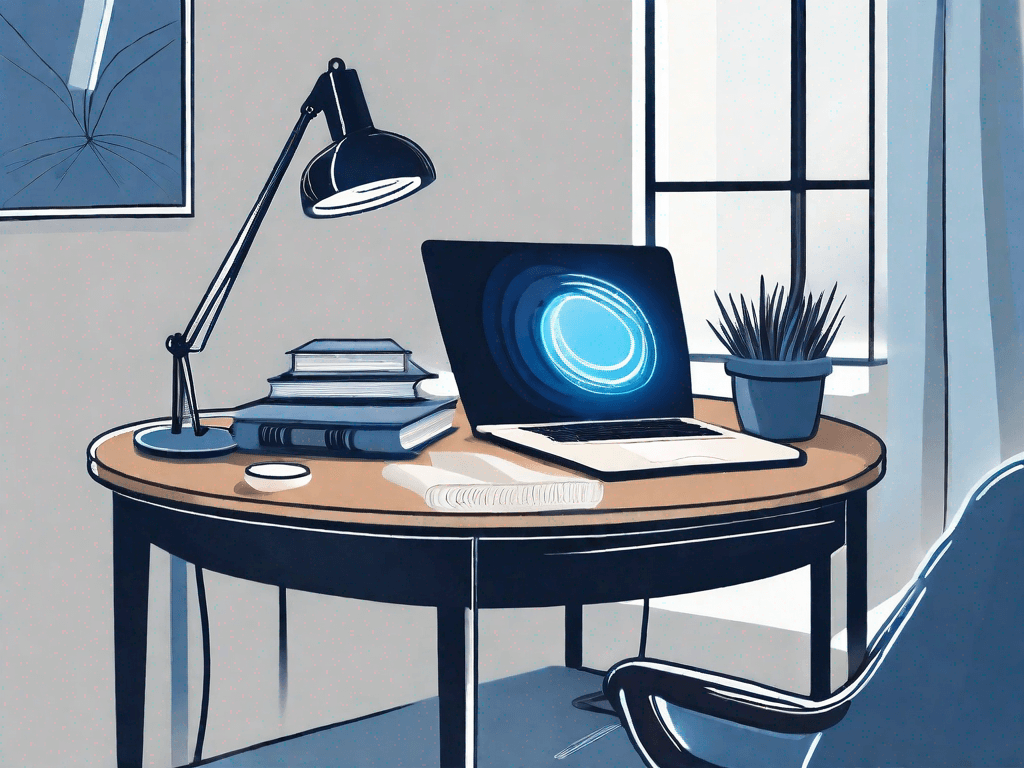When to wear blue light glasses
We all know the importance of protecting our eyes from blue light, but do you really understand what it is and when to wear blue light glasses and why they can help? Blue light from digital devices can cause physical symptoms such as: eye strain, fatigue and headaches; however, wearing blue light glasses helps to alleviate these issues while also providing a fashionable and stylish look. Knowing when to wear blue light glasses helps reduce these symptoms while also providing a stylish look to your everyday wardrobe. Learn more about the benefits of when to wear blue light glasses as well as how to choose the right pair for you in this blog post. We'll cover types of lenses available, tips for proper use and care instructions so that you get maximum protection with minimal effort.
Table of Contents:
- Benefits of Wearing Blue Light Glasses
- Types of Blue Light Glasses
- How to Choose the Right Blue Light Glasses for You
- Tips for Wearing Blue Light Glasses Properly
- Care and Maintenance of Blue Light Glasses
- FAQs in Relation to When to Wear Blue Light Glasses
- Conclusion
Benefits of Wearing Blue Light Glasses
The benefits of wearing blue light glasses are numerous and can help improve overall quality of life. For creative professionals in large metropolitan cities, these glasses may provide a much-needed respite from the digital devices they use daily. Advantages like better sleep, alleviation of eye strain, and improved mental well-being could come from wearing blue light glasses.
Improved Sleep Quality:
One major benefit of blue light blocking glasses is that they help regulate your body's natural circadian rhythm. This means that you will be able to get better quality sleep at night by limiting exposure to artificial lights before bedtime. Studies suggest that individuals who don blue light blocking glasses two hours before sleep tend to have heightened melatonin production, which can aid in a more restful slumber. Those who don these spectacles for a couple of hours preceding bedtime report feeling more invigorated on arising than those not utilizing them habitually.
Reduced Eye Strain:
Blue light blocking lenses also reduce the amount of glare on screens which can cause eyestrain when used for long periods at a time or when working with multiple monitors simultaneously. The lenses filter out harmful UV rays while allowing beneficial ones through so you won't have to squint as much while looking at digital devices such as phones or tablets during extended periods throughout the day or evening hours. Furthermore, because less strain is placed on your eyes it can also reduce headaches associated with prolonged screen usage over time.
Improved Mental Health:
Finally, studies have shown that regular use of blue light blocking lenses has been linked with improved moods due to increased serotonin levels produced by exposure to natural sunlight during daytime hours rather than artificial lighting found indoors after darkening outside timespan ends . It has been suggested that this could lead individuals towards better mental health outcomes over time if worn regularly especially among individuals living in larger cities where there is often limited access outdoor activities due daylight savings changes seasonally .
Wearing blue light lenses may lead to more restful sleep and reduced eye fatigue, thus improving one's overall health and wellbeing. Moving on, let's explore the different types of blue light glasses available for purchase today.
When to Wear Blue Light Blocking Lenses
When Working on a Computer:
You should be wearing your blue light blocking lenses whenever you are using a desktop monitor or laptop computer. Overexposure to the blue light emitted from these screens can lead to dry eyes and headaches, so it is important to protect yourself with the right lenses. Additionally, make sure that you are blinking frequently and setting up your workspace in an ergonomic way to reduce digital eye strain.
When Using Electronic Devices:
It is also important to wear your blue light blocking lenses when using handheld electronic devices such as smartphones, tablets, and e-readers. Many people use their phones more than 120 times each day, which means they are constantly being exposed to harmful blue light without realizing it. To reduce the potential damage caused by this overexposure, make sure that you keep your lenses on during those periods of time when you reach for your device most often.
In Natural Sunlight:
Finally, don’t forget about natural sunlight. Blue light is found naturally in sunlight and exposure can provide necessary Vitamin D for our bodies; however, too much sun can have negative impacts on both our skin and our eyes. Make sure that if you plan on spending extended periods of time outdoors that you have protection from UV rays as well as protecting yourself from the potentially damaging effects of blue light with quality glasses or sunglasses equipped with specialized lens technology designed specifically for blocking out harmful wavelengths of visible light spectrum including ultraviolet (UV) radiation & high energy visible (HEV) radiation like blue lights emitted by digital devices & LED lighting fixtures
Key Takeaway: Wearing blue light glasses can help improve sleep quality, reduce eye strain and boost mental health. By filtering out harmful UV rays while allowing beneficial ones through, they provide a much-needed respite from digital devices; "a breath of fresh air" if you will.Types of Blue Light Glasses
When it comes to blue light glasses, there are three main types: computer glasses, reading glasses, and sunglasses with blue light protection. Computer glasses are designed specifically for those who spend a lot of time in front of their screens or digital devices. They feature lenses that filter out the harmful high-energy visible (HEV) blue light emitted by digital devices such as computers, tablets, and phones. This helps reduce eye strain caused by prolonged exposure to these devices. Reading glasses have similar lens technology but can also be used for other activities like reading or working on paper documents. The lenses help reduce glare from overhead lighting while providing clarity and comfort when looking at printed materials or books. Finally, sunglasses with blue light protection from natural blue light from the sun provide both UV protection and HEV filtering capabilities in one pair of glasses. These are perfect for outdoor activities where you need sun protection but still want the benefits of blocking out some of the damaging effects of digital device radiation on your eyesight and the natural blue light from the sun. All three types offer different levels of HEV filtration so make sure you choose the right ones based on your lifestyle needs.
The selection of coatings and treatments to be applied on prescription eyeglasses may vary, depending upon the usage. For example, anti-reflective coating reduces glare from bright lights; scratch resistant coating makes them more durable; UV protection treatment blocks out damaging sun rays; polarized tints reduce driving glare; photochromic treatments darken when exposed to sunlight while mirrored tints give a stylish look and gradient tint fades top down bottom creating an interesting effect. It is therefore advised that you consult with your optician prior purchasing any frameslenses combination either online or at an offline store front location in order to decide which option would best suit your needs.
Finding the correct blue light glasses for your needs involves picking from a selection of sizes and designs. When considering what type of blue light glasses you should buy, it is also important to consider the lens material and coating options as well as frame style and fit.
How to Choose the Right Blue Light Glasses for You
Choosing the right blue light glasses for your needs and lifestyle can be a daunting task. It’s important to consider factors such as lens material and coating options, frame style and fit before making a purchase.
When considering your needs and lifestyle, ask yourself what you will primarily use the glasses for. Do you need them to block out bright sunlight while driving? Or are they mainly meant to reduce eye strain from long hours in front of digital screens? Knowing how often you plan on wearing them will help narrow down the choices available.
The next factor to consider is lens material and coating options. Most blue light glasses come with CR-39 plastic lenses that offer superior the highest clarity and are more lightweight. Additionally, look into anti-reflective coatings which can help minimize glare when looking at digital screens or when exposed to bright lights outdoors.
Finally, take into account frame style and fit when selecting blue light glasses. Make sure they are comfortable enough to wear all day if needed without causing any headaches or discomfort around your temples or ears due to an ill-fitting pair of frames. The size should also match up well with your face shape; opt for larger frames if you have a rounder face while smaller ones work better for oval shaped faces. Do not forget about color either - a bold colored frame can make a statement piece that adds some flair no matter where you go.
By considering your needs and lifestyle, lens material and coating options, as well as frame style and fit when choosing blue light glasses, you can ensure that you get the most out of them. Additionally, by following a few tips for proper wearing habits such as regularly wearing them throughout the day or adjusting screen settings to reduce glare will help keep your eyes healthy while using digital devices.
Tips for Wearing Blue Light Glasses Properly
Wearing blue light glasses regularly throughout the day is an important part of reducing eye strain and improving sleep quality. Blue light glasses are made to block out the damaging blue wavelengths that come from digital gadgets such as laptops, tablets, and phones. To get the most benefit from your blue light glasses, it’s important to wear them correctly. Here are some tips for wearing blue light glasses properly:
First, make sure you’re wearing your blue light glasses throughout the day when using digital devices. Wearing them during just a few hours in the evening won’t be enough to protect your eyes from prolonged exposure to harmful blue light. For maximum protection, you may want to invest in two pairs of glasses—one for day and one for night—so that you can switch between them easily.
Second, adjust your screen settings whenever possible to reduce glare and maximize comfort while wearing your lenses. Most modern devices have settings that allow you to adjust brightness levels or even add filters specifically designed for filtering out certain types of radiation (such as UV rays). Utilizing these features can help minimize eye fatigue caused by prolonged exposure to screens with high levels of contrast or harsh lighting conditions.
Finally, take regular breaks from looking at screens every few hours when wearing your lenses to avoid overuse or discomfort. These rest periods also help reduce eyestrain associated with long-term viewing habits since it gives our eyes a break from potentially damaging LED lights found on many electronic displays today. Additionally, taking brief walks outdoors during lunchtime can give both body and mind much needed respite after sitting in front of a computer all morning.
Wearing blue light glasses correctly can help keep your eyes healthy and shielded from the damaging consequences of digital exposure. Now let's look at how to care for and maintain your glasses so they last longer.
Care and Maintenance of Blue Light Glasses
Maintaining your blue light glasses is essential to ensure they last and perform as intended. Here are some tips on how to properly care for them.
Cleaning Your Lenses Regularly:
It’s important to keep your lenses clean so you can get the most out of them. Use a microfiber cloth or lens cleaning wipes that are specifically designed for cleaning glasses, and avoid using any harsh chemicals or abrasive materials. Make sure you wipe both sides of the lenses gently in a circular motion until all dirt and debris has been removed.
Storing Your Glasses Properly:
When not in use, store your blue light glasses in their case when possible, making sure it is closed securely so dust doesn't accumulate on the lenses. If storing them without a case, make sure they're placed somewhere safe where they won't be damaged by other objects or people accidentally knocking into them.
When the lenses become worn or scratched, it's best to replace them for continued protection from UV rays and reduced eye strain due to glare. This will help ensure that you continue getting optimal protection from harmful UV rays and reduce eye strain caused by glare off digital screens such as computers and smartphones – two key benefits of wearing these types of eyewear.
FAQs in Relation to When to Wear Blue Light Glasses
When should I wear my blue light glasses?
When to wear blue light glasses: When you are exposed to digital screens for extended periods of time. Engaging in digital activities, such as computing, viewing TV or utilizing a smartphone, necessitates the wearing of blue light glasses to reduce hazardous blue radiation and avert eyestrain and headaches. Blue light glasses help reduce the amount of harmful blue light emitted from these devices that can cause eyestrain and headaches. Blue light glasses help guard the eyes from any potential harm that could be caused by long-term exposure to blue light radiation. By wearing them regularly, you can ensure that your vision remains healthy and strong over time.
Should you wear blue light glasses during the day?
Yes, it is beneficial to wear blue light glasses during the day. Blue light from digital devices such as computers and smartphones can cause eye strain, headaches, and even disrupt sleep patterns. Wearing blue light glasses helps reduce these symptoms by filtering out harmful wavelengths of blue light while allowing in beneficial ones. Moreover, wearing sunglasses during the day can provide protection from UV rays which may cause vision issues if not addressed.
Is it good to wear blue light blocking glasses?
Yes, it is beneficial to wear blue light blocking glasses. Blue light emitted from digital screens has been linked to fatigue, disrupted sleep cycles and other potential health issues. Wearing blue light blocking glasses can help reduce the amount of exposure to this type of artificial lighting and protect your eyes from long-term damage. Additionally, these glasses can also improve visual clarity by filtering out glare that may cause eye strain or headaches.
What is the disadvantage of blue light glasses?
The primary disadvantage of blue light glasses is that they can be expensive. Blue light glasses may be pricier than regular sunglasses, and the lenses employed in these specs might not have the same sturdiness or scratch-resistance as other lens materials. Additionally, some people find that blue light glasses are less aesthetically pleasing compared to traditional eyewear due to their bulky size and dark tinting. Finally, there is a lack of research available on the long-term effectiveness of blue light glasses in protecting against digital eye strain caused by prolonged exposure to electronic screens.
Conclusion
Knowing when to wear blue light glasses can be an effective way to safeguard your vision from the detrimental effects of lengthy exposure to digital screens and digital devices. It is important that you choose the right type of glasses for your needs, wear them properly, and take good care of them so they last as long as possible. With these tips in mind, it's time to start wearing blue light glasses today.
Protect your eyes from blue light damage by investing in a pair of quality blue light glasses or sunglasses. Start today and experience the difference for yourself!






